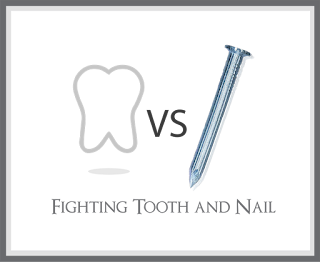By David H. Khalili
Founder of DentalLabSupport.com
Lead nurturing is an important part of any inbound marketing campaign. After generating leads through the strategic use of content marketing and custom designed landing pages, you want to be sure that your leads actually turn into customers by providing them with regular messages that increasingly nudge them toward a sale.
But of course, as is the case in any digital marketing initiatives, it's important to follow industry standards in order to be successful. Here are 3 best practices that aid your lead nurturing efforts, with the help of CRM Software.
1) Segment and Target
A blank nurturing strategy can be dangerous. Put simply, sending the same emails to every one of your leads risks annoying them with content that is not relevant to their individual needs. Instead, consider segmenting your leads into different groups, and targeting individual messages specifically to these groups.
Segmenting, of course, begins with a custom landing page that asks your audience for more than just their name or email address. While you need to keep your sign up forms relatively short, asking one or two distinguishing questions helps separate your contacts into distinct segments. And once you set up that landing page, an effective CRM can do the rest. Now, you can set up targeted nurturing campaigns with emails directed only at the portions of your audience for which they are most relevant, ensuring a smooth experience for your leads and better chances of turning into customers.
2) Support your campaign with Content
You should also consider expanding your lead nurturing strategy beyond mere email marketing. While emails remain the lifeblood of any 'drip' campaign, what if you use them to promote content that is relevant to leads in a specific stage in the sales funnel?
Of course, this strategy can take some effort, as you will have to build content that relates to audiences who already know about you. But once you have this type of content, you can enrich your nurturing efforts by providing actual, valuable content rather than just a prompt to become your customer. It turns your emails into true nurturing efforts, rather than mere promotional messaging.
3) Time Strategy
Finally, you should pay serious attention to when you send out your emails. Individual studies vary on the optimal amount of emails you should send your audience per month, but most experts generally recommend a median between once and twice per week.
Finding the right balance in your email send frequency is crucial: if you don't send nurturing emails often enough, your contacts will forget about you or go with a competitor instead. But do it too often, and you will land in too many spam folders and unsubscribe lists to be effective.
If you're looking which exact send frequency can work for you, your CRM can help. In fact, you can ran reports on your open, click-through and unsubscribe percentages, which in turn helps you understand how your send frequency impacts these success metrics. Thankfully, most CRMs allow you to easily make changes to your automation workflows that ensure you get the most out of your email nurturing efforts.
Nurturing your leads to becoming customers can be incredibly valuable, especially considering its low cost and the high degree of automation available through customer relationship management software today. But even with this software, you want to be sure that you follow the above best practices.
By segmenting your leads and targeting your messages, supporting your emails with content, and implementing the right send frequency, your lead nurturing efforts will make a significant impact in generating new customers. And if you're looking for a CRM that can help you throughout the process, contact us! visit DentalLabSupport.com for more information or contact us by telephone 1-888-715-9099.










